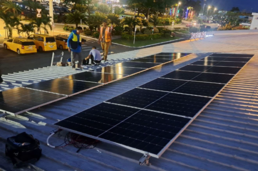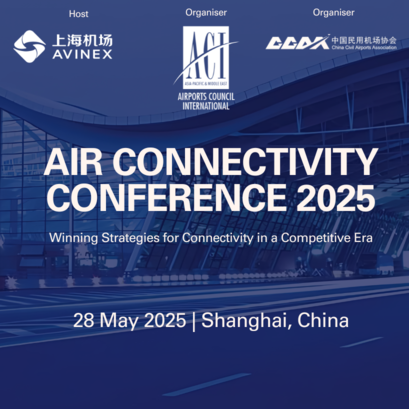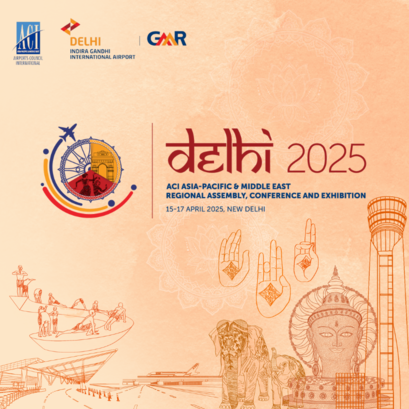
World's First Initiative to Promote SAF Use and Decarbonize Aviation Begins - Scope 3 Environmental Value Trading Demonstration Test to be Conducted at Narita Airport -
- 2024-09-03
Sustainable aviation fuel (SAF)*1 is expected to contribute to the decarbonization of aviation by substantially reducing the volume of CO2 emissions compared with conventional aviation fuel.
To encourage the use of SAF, a project aimed at building a new scheme for trading Scope 3 environmental value*2—the reduction effects of indirect CO₂ emissions resulting from SAF use—is being launched. As the first step, seven companies (listed on the next page) have agreed to conduct a demonstration test of Scope 3 environmental value trading to verify the concept behind the new scheme.
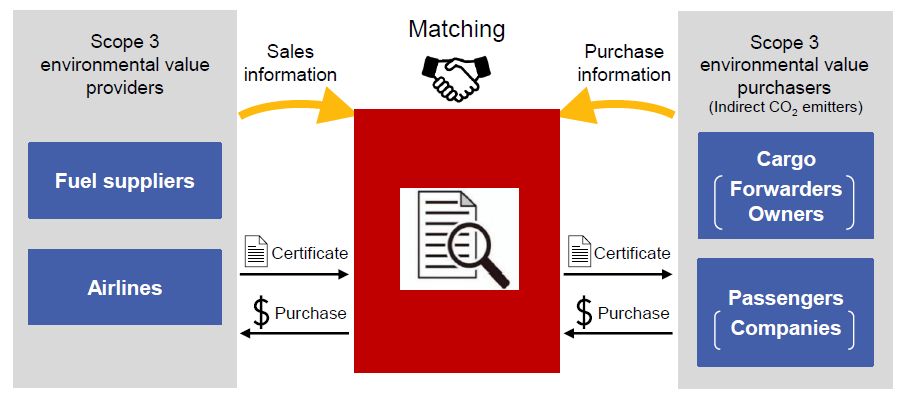
This represents the world’s first*3 initiative bringing together fuel suppliers, an airline, a forwarder, and an airport operator in an effort to jump-start trading in Scope 3 environmental value. Brisk trading in environmental value via this project’s scheme will make it possible to share the costs associated with SAF throughout the air transport value chain.
After a trial phase of trading, a full-scale demonstration project with a larger number of participating companies will be followed by efforts to achieve the social implementation of the established scheme. The use of this scheme by a large number of companies involved in air transport will generate substantial opportunities to drive the widespread uptake of SAF throughout Japan. Extending decarbonization efforts to encompass the entire air transport value chain will secure the sustainable growth of the aviation industry.
Information on and Comments from Each Company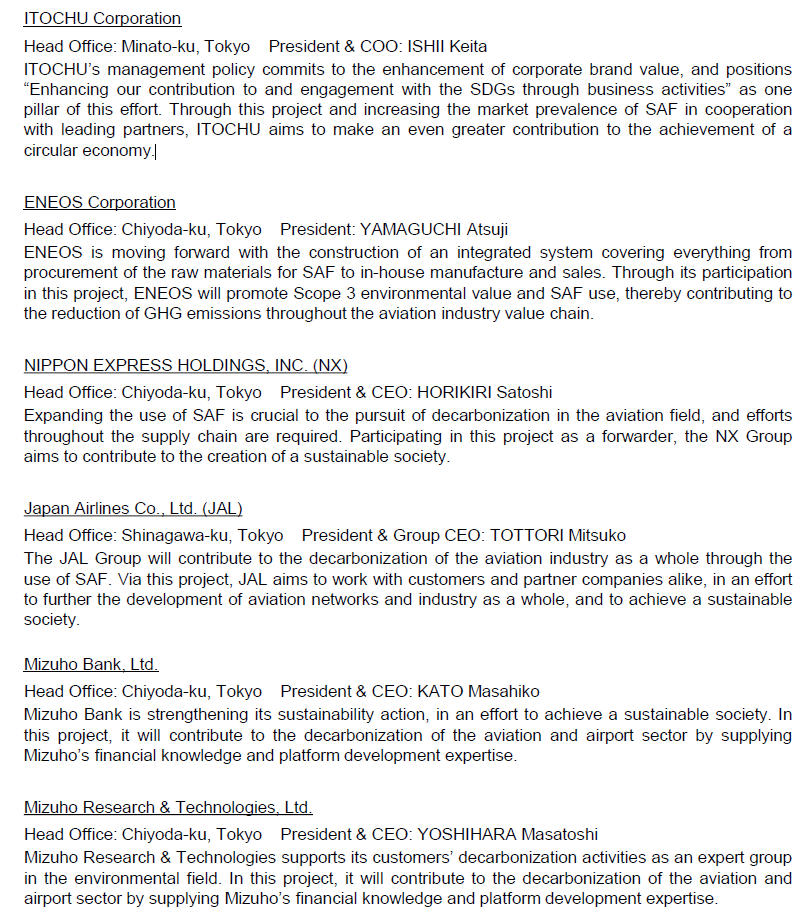

■ Overview of the Scope 3 Environmental Value Trading Scheme
Information about the sale and purchase of Scope 3 environmental value will be gathered on the platform and matching will take place, thereby creating opportunities for Scope 3 environmental value trading.
Scope 3 environmental value sellers will bring SAF to Narita International Airport, and will provide Scope 3 environmental value on the platform. Scope 3 environmental value buyers will purchase Scope 3 environmental value corresponding to their purchase conditions via the platform.
■ Effects of the Scope 3 Environmental Value Trading Scheme
Fuel suppliers and airlines (Scope 3 environmental value sellers) currently have their own programs for selling Scope 3 environmental value individually. The scheme to be developed in this project will enable airlines and fuel suppliers to gain new customers for their Scope 3 environmental value, in addition to their own programs.
In addition, both sellers and buyers of Scope 3 environmental value will be able to consolidate their Scope 3 environmental value trades, thereby eliminating the need to conclude multiple individual contracts with the partners in each transaction.
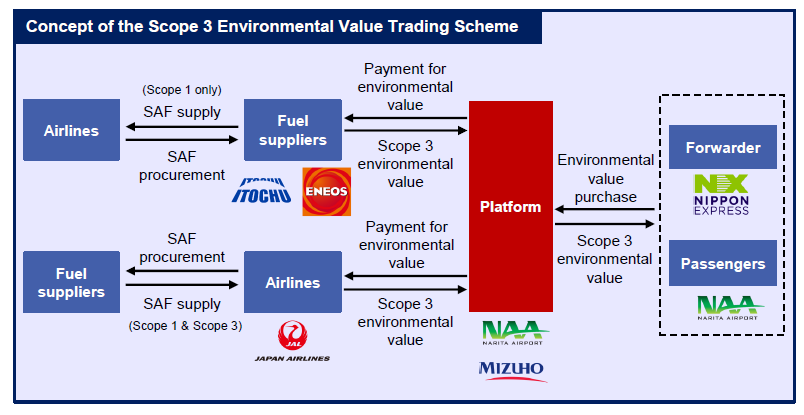
◼ Roles of Each Company in This Demonstration Test
=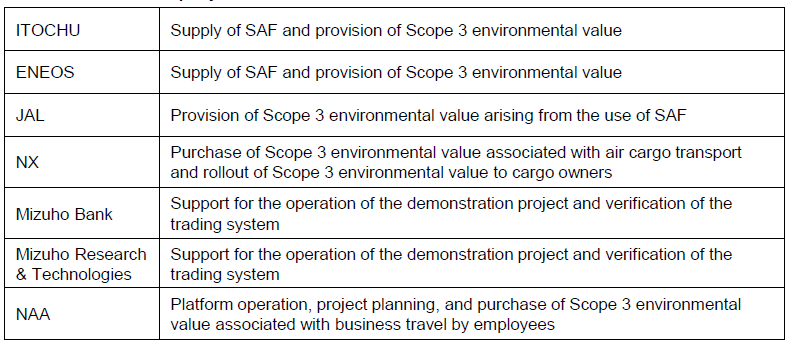
*1: SAF
SAF is an aviation fuel manufactured from non-fossil sources, including animal and vegetable oils and fats, waste cooking oil, and municipal waste. Using SAF makes it possible to substantially reduce greenhouse gas emissions compared with aviation fuel of fossil origin, which means that flights have a lower impact on the environment than has been the case until now.

*2: Scope 3 environmental value
Scope 3 environmental value arising from the use of SAF is becoming the focus of attention. The use of SAF by airlines will reduce direct emissions of CO2 from aircraft (airlines’ Scope 1 emissions). At the same time, it will have the effect of reducing indirect CO2 emissions arising from such activities as air cargo transport and employees’ business travel (aviation users’ Scope 3 emissions). This is called Scope 3 environmental value and enables companies that have used air transport fueled by SAF to reduce their own company’s Scope 3 emissions.
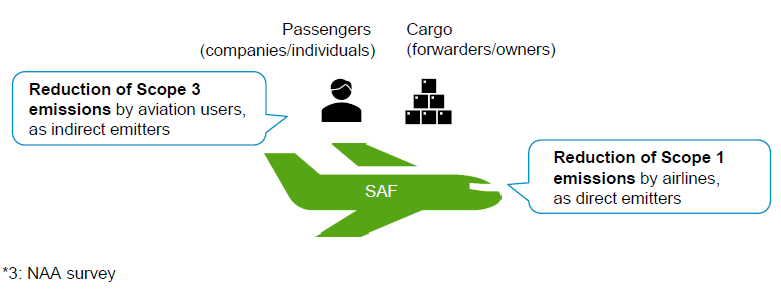
- CATEGORY
- COUNTRY / AREA
- Japan
- AUTHOR
- Narita AirportNarita International Airport Corporation


